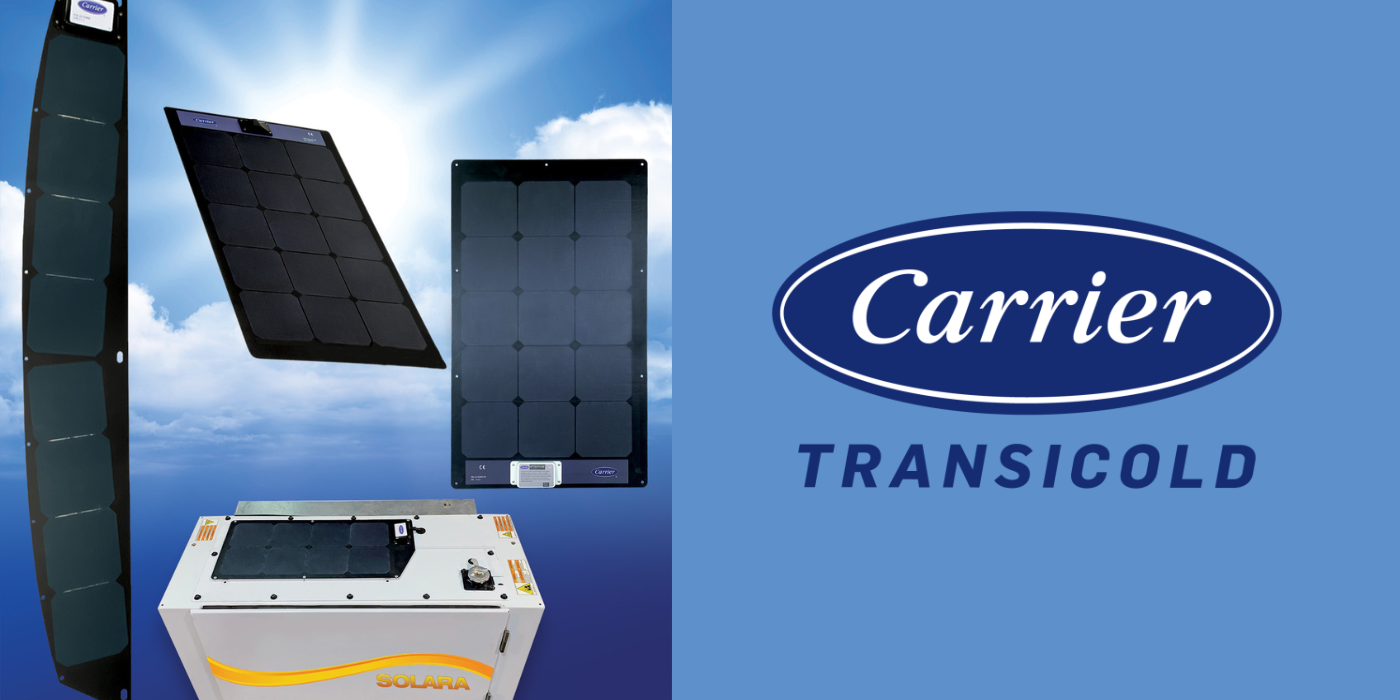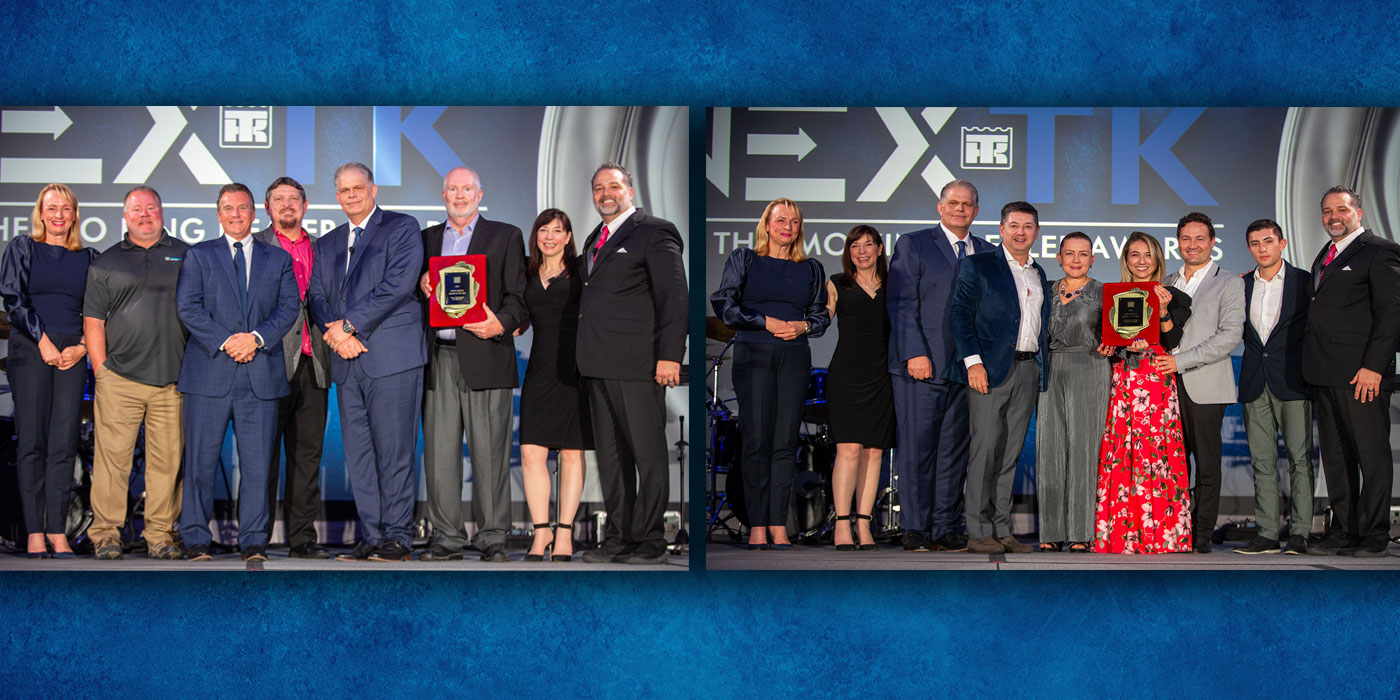Trucking is a business with razor thin profit margins, where any gains in efficiency can mean the difference between profit and loss. In this type of environment, equipment manufacturers continually strive to develop products that offer both greater capacity and less weight. This is always a tricky balancing act – but especially so for companies catering to the refrigerated segment of the industry, in which the demands of temperature control add an extra element to the pounds-versus-size equation.
Manufacturers have made great strides on this front during the past decade or so. Today’s refrigerated trailers are both bigger and lighter than those built in the ‘80s and ‘90s. They’re also more durable. Equally important, the units cooling or heating those trailers are more robust. And they’ve shed some pounds, too, in recent years.
“Weight is a consideration in our business, but it’s not necessarily a driving factor in the development process,” says Dave Keifer, director of marketing and product management for Carrier Transicold. “Performance is higher up the ladder. That’s what enables trailer manufacturers to make more substantial-weight-saving changes in their vehicles.”
Keifer says Carrier’s standard trailer-mounted units, tipping the scales at roughly 1,640 lbs. (dry), are about 6% lighter than comparable models 10 years ago.
Engineers at Thermo King have made similar reductions in their 1,650-lb. (dry) trailer units, says Doug Lenz, product manager for trailer and rail. “We’ve done this by using composites where possible, integrating components and using lighter electronic devices,” he says.
While agreeing that weight is a secondary consideration in unit manufacturing, Lenz says he understands customers’ need to operate the lightest vehicles possible for their applications. He’s optimistic about further reductions in the future.“We think there are some opportunities to lower weight with better efficiency and optimization of major components,” he says. The company is also working on a hybrid technology that would draw its power from a truck’s driveline. “By eliminating the engine and compressor, we could save between 300 and 400 lbs.”
Such a savings would be impressive – and nearly half of what trailer builders have pulled from their ever-enlarging reefers during the past two decades, according to Adam Hill, technical information manager for Great Dane Trailers.“Conservatively, I’d guess that a typical single temperature trailer now is about 800 to 1,000 lighter than those made when I got into this business in 1984,” he says.
Great Dane and its competitors have seen reductions in variety of components: tires, sub frames and suspensions, axles and wheel ends. They’ve also benefited from the introduction of lighter and high-strength steel, new polymers, bonding adhesives and composites. Hill says the biggest changes have been in suspensions and interior linings.
Rob Fortney, general sales manager for Wabash National, enthusiastically agrees with at least half of Hill’s assessment: “The biggest recent advance has been new liner materials,” he says. “They are thinner, stronger, better finished and smoother than the stuff we used in the past,” he says. “They’re about the best thing since pockets on a shirt.”
Fortney says the transition of liners began about six years ago, but it’s really advanced during the last two. “We went from Kemlite to Bullitex to Versitex and cut the weight of our 53-ft. reefers by 200 to 300 lbs,” he says. The newest liners, introduced in 2006, are made of thermoplastic, which is apparently not only lighter, but also stronger and more impact resistant than Kemlite, a fiberglass-reinforced-polyester material.
T
he new liners in Wabash reefers feature a “sonically welded” Versitex scuff plate that’s said to be more durable than the aluminum panels it replaced – and it requires no metal attaching screws. “Those were bad heat sinks,” Fortney says. “Now, because these interiors are less susceptible to damage and temperature loss, buyers can spec thinner walls than they might have previously considered.”
All modern refrigerated trailers are within a few hundred pounds of each other, tipping the scales from 15,000 to 17,000 lbs (with unit), depending on options.
Don Hindman, a senior engineering manager at Hyundai Translead, says his company has focused its weight-cutting efforts on flooring systems.“We created our floor using finite-element analysis and tried to optimized the materials as much as possible,” he says. “This was followed by real-world testing to create a 16,000-lb. rated floor that’s about 180 lbs. lighter than the previous floor.”
Hindman says composite materials will offer further weight savings in the future. He also predicts that alternative insulating materials are on the horizon. Although still cost prohibitive, these would be lighter and provide greater longevity and thermal efficiency than the polyurethane foam used today.
There is no shortage of options for buyers who want to solely target gravitational pull of their trailers, but weight should be just one of many considerations when ordering equipment, says Chuck Cole, manager of technical sales and product training at Utility Trailer Manufacturing.
“As a manufacturer, we need to know as much as possible about the intended use of a trailer,” he says. “After reviewing customers’ operations, we sometimes have to tell them that a lightweight spec won’t work. We don’t want to sell a product that doesn’t meet their needs, both in terms of performance and longevity.”Price is another important consideration, Cole says. Although some choices can save money – thinner wall insulation, for example – others add mightily to the total. “If you’re buying aluminum wheels just for their lower weight, you’re spending about $7 per pound,” Cole says. “Buyers need to determine if that’s a worthwhile investment.”
He says the entire vehicle’s weight must also be taken into account during the spec’ing process. “You can never pull enough weight out of a trailer to compensate for an excessively heavy truck.”
The basic equation for any refrigerated carrier is one of value: What’s a pound of vehicle weight worth? That number will vary widely among – and maybe even within – companies. Whatever the number, however, it should be the starting point for any serious effort to spec a lighter refrigerated trailer. FE



